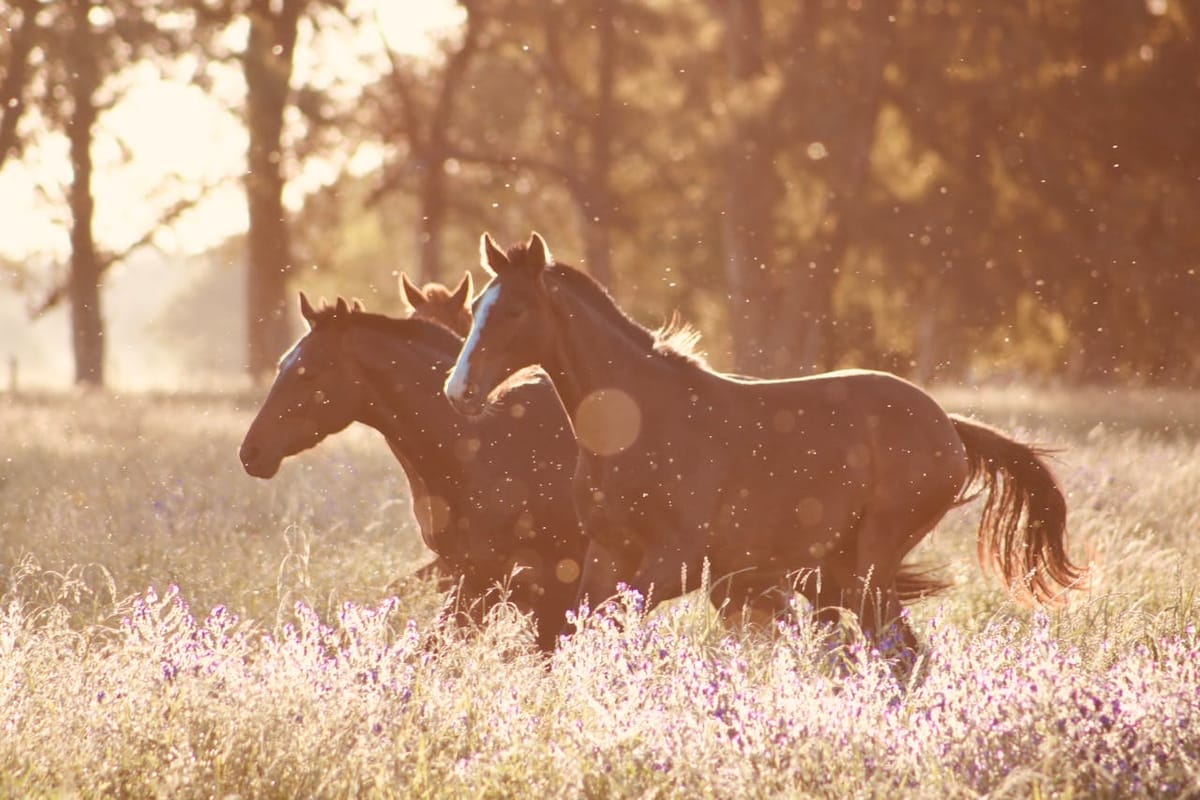Most Iconic Horse Racing Anthems

There are many notable sounds in horse racing. There is the thundering of the hooves as each horse pounds down the stretch, which is only matched by the thunderous shoes of successful bettors charging to the windows.
The jockeys call, cry out, and smooch to their mounts to urge out every last effort. Track announcers call the race, their pace and pitch driving upward as the drama intensifies. The bugle player, of course, punctuates the experience with their own take on the classic call to the post.
However, more than that, there are songs that are associated with- or sometimes, specifically written for- certain racing events. These songs evoke every bit as much emotion as the historic races do. Read on to learn more about the most iconic horse racing anthems.
Camptown Races
This tube is so ubiquitous in pop culture that it is possible to forget that it is, in fact, about horse racing. Written in 1850, the original lyrics were used in racist minstrel shows and were composed in a dialect now recognized as racist; however, they have been adapted in modern times. The song was originally popularized by minstrel shows but has since been recorded and performed by many singers and fictional characters, such as Bing Crosby, Al Jolson, Foghorn Leghorn, and characters from The Office.
The song is set at the town racetrack in Camptown, Pennsylvania, a track which did once hold horse races but was unlikely to have ever been “five miles long,” as was mentioned in the lyrics. Composer Stephen Foster was said to have traveled through the small town, and lived in the area from 1840-1841, after which he wrote the song.
Where The Turf Meets The Surf
This song, by Bing Crosby, was written and played for Del Mar Race Track in Southern California. Crosby owned (in part) the celebrated race track, and the song was a promotion that was not released commercially. The John Scott Trotter Orchestra recorded the song with Crosby, and it was played every day of Del Mar’s racing season following the song’s completion in 1941.
The song, which is composed of only two stanzas, describes a patron arriving at the track, and ends with the assertion that at Del Mar, there is a “smile on every face/and a winner in each race.”
Run For The Roses
A more modern horse racing anthem, Run for the Roses was released by Dan Fogelberg on his 1981 album, The Innocent Age. However, it was initially commissioned by ABC for their broadcast of the 1980 Kentucky Derby. It became instantly connected to the race it shares a name with, and it peaked at number 18 on the Billboard Top 100 chart.
The tune features a melody and instrumentation that evokes images of the Kentucky bluegrass and folk tunes of long ago. The lyrics describe a foal being born and raised on an idyllic farm in Western Kentucky.
The horse grows up enjoying “the long lazy mornings/and pastures of green,” but states that such pleasures “will never prepare you/for what lies ahead/the run for the roses so red.” It encapsulates the feeling that the Kentucky Derby, the “chance of a lifetime in a lifetime of chance,” is the point in any young racehorse’s career that all of the humans in his life are continually driving toward.
My Old Kentucky Home
Undoubtedly the most iconic horse racing anthem, however, is one that was not in the least written with horse racing in mind. Indeed, while Stephen Foster had spent time in the relatively unknown Camptown, Pennsylvania as mentioned above, he never even set foot anywhere in the state of Kentucky. His most famous song was based on a nostalgia for an “old Kentucky home” that never actually existed. Nevertheless, the tune struck a chord with denizens of the Bluegrass State, and it was adopted as the official state song. It was first performed at the Kentucky Derby in the 1930s, and is traditionally played by the University of Louisville Marching Band.
Although perennially popular, the song is not without controversy. Many view the song as inherently racist due to its original lyrics and its use in nineteenth-century minstrel shows. However, the song is believed to have been inspired by Harriett Beecher Stowe’s progressive novel Uncle Tom’s Cabin, and abolitionist Frederick Douglass believed that the song, rather than mocking or whitewashing slavery, would awaken sympathy for enslaved people.
While some have called for the song to be removed from the Kentucky Derby festivities, there has not yet been a significant effort to do so (unlike the official song for the Preakness Stakes winners, “Maryland, My Maryland, which was discontinued in 2020 due to its connection to the Confederacy). The song remains popular, and throughout the Kentucky Derby audience, people can be seen wiping tears from their eyes, claiming themselves to be Kentuckians for just the briefest moment in time.






